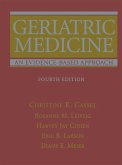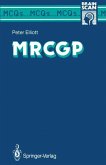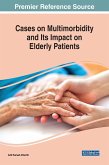The second edition of PROTOCOLS IN PRIMARY CARE GERIATRICS continues its mission of improving practical, clinical knowledge among physicians and others caring for elderly people, while providing updated information on several major areas in the field. Reflecting current practice trends, a new chapter on home care has been added as well as one on comprehensive geriatric assessment. Revised guidelines for falls, incontinence, and drug treatment are also featured. Designed to provide both quick reference to clinical problem-solving schemes and lists, as well as a lucid, readable discussion of basic topics in geriatrics, the book's value lies in its combination of brief, readable chapters, a section of notes in outline form, staightforward clinical approaches, didactic exercises, and new updated case studies. Family physicians, primary care internists, and other primary specialists caring for elderly people will find this book of great value. It is also not to be missed by residents, as well as nursing homes, hospitals, and indiviual health care professionals, other than physicians, who will benefit from its use as a clinical reference guide.
The striking increase in average life expectancy during the twentieth century rates as one of the major events of our time. We are in the midst ofa social revolution-one rooted not in a new ideology, but in our changing population pat terns. For the first time in human history, infants in fortu nate nations like ours can expect to live well into their seventies and beyond. This demographic revolution increases pressure on re sources, as it also creates further social change and new opportunities for older persons. Such rapid changes have left most people "living in the past," with their generally negative attitudes about aging and elderly people. The same outmoded beliefs are embedded in many ofour health care programs. In our youth-oriented culture, most of us still view old people as physically decrepit or in rapid, inevitable decline. Mentally, they are viewed as forgetful or childish, with little ability to learn and adapt. Socially and economically, they are often considereda burden. With such stereotypes, where is the expectation and encouragement for their con tinuing capacity to enrich their own lives, and to enrich society? These deep-seated cultural stereotypes do not describe accurately the "new wave" ofelderly persons or their poten tial contributions to society. Today's aging individuals are mostly far from decrepit: fewer than 25 percent experience any disability and fewer than 5 percent are in nursing homes. Intellectually, given new opportunities to learn and grow, they thrive.
Hinweis: Dieser Artikel kann nur an eine deutsche Lieferadresse ausgeliefert werden.
The striking increase in average life expectancy during the twentieth century rates as one of the major events of our time. We are in the midst ofa social revolution-one rooted not in a new ideology, but in our changing population pat terns. For the first time in human history, infants in fortu nate nations like ours can expect to live well into their seventies and beyond. This demographic revolution increases pressure on re sources, as it also creates further social change and new opportunities for older persons. Such rapid changes have left most people "living in the past," with their generally negative attitudes about aging and elderly people. The same outmoded beliefs are embedded in many ofour health care programs. In our youth-oriented culture, most of us still view old people as physically decrepit or in rapid, inevitable decline. Mentally, they are viewed as forgetful or childish, with little ability to learn and adapt. Socially and economically, they are often considereda burden. With such stereotypes, where is the expectation and encouragement for their con tinuing capacity to enrich their own lives, and to enrich society? These deep-seated cultural stereotypes do not describe accurately the "new wave" ofelderly persons or their poten tial contributions to society. Today's aging individuals are mostly far from decrepit: fewer than 25 percent experience any disability and fewer than 5 percent are in nursing homes. Intellectually, given new opportunities to learn and grow, they thrive.
Hinweis: Dieser Artikel kann nur an eine deutsche Lieferadresse ausgeliefert werden.








